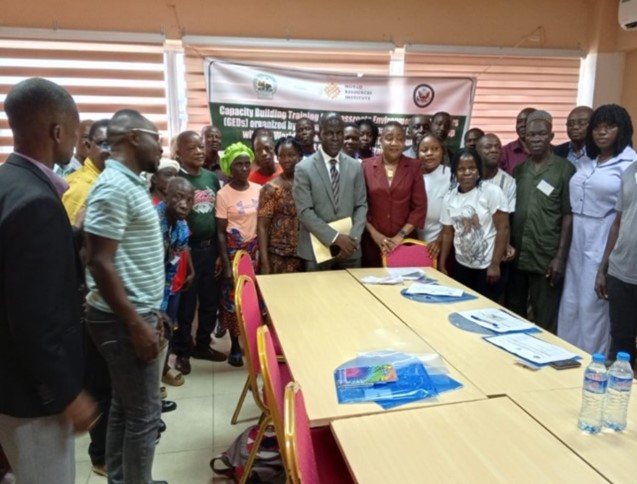Liberia is embarking on a significant drive to strengthen environmental protection, marked by the announcement of new regulatory measures and a renewed focus on empowering grassroots environmental defenders. The Environmental Protection Agency (EPA), under the leadership of Executive Director Dr. Emmanuel Yarkpawolo, has unveiled a suite of regulations designed to address critical environmental challenges facing the nation. These regulations target areas of significant concern, including air and water quality, wetlands preservation, solid waste management, radiation control, and the proper management of landfills. This comprehensive approach signals a strong commitment from the EPA to safeguard Liberia’s natural resources and protect public health. The introduction of these regulations comes at a crucial juncture, as Liberia grapples with the complex interplay between development, resource extraction, and environmental sustainability.
Concurrent with the regulatory push, Liberia is also investing in building capacity among grassroots environmental defenders, recognizing their crucial role in holding polluters accountable and advocating for the rights of their communities. A collaborative effort between Green Advocates International, the World Resources Institute, and the U.S. Department of State is supporting a training program aimed at empowering 75 environmental defenders across all 15 of Liberia’s political subdivisions. This initiative equips local advocates with the knowledge and skills necessary to navigate complex environmental issues, engage with stakeholders, and pursue legal avenues for redress. The training program underscores the importance of community-based environmental stewardship and recognizes the unique insights and on-the-ground experience that local defenders bring to the table.
The focus on empowering grassroots defenders is particularly vital given the power dynamics often at play in environmental conflicts. Dr. Yarkpawolo has highlighted the vulnerability of communities who are unaware of their environmental rights, making them susceptible to exploitation by powerful interests. He emphasized the critical role of defenders in educating the public about these rights, enabling communities to advocate for themselves and hold polluters responsible for environmental damage. This empowerment is even more crucial in the face of potential suppression, oppression, and even violence against environmental defenders, tactics often employed by those who prioritize profit over environmental and community well-being.
The training program provides a comprehensive curriculum covering critical aspects of environmental advocacy. Legal experts are leading sessions on Liberian environmental law, encompassing land, water, mining, and agricultural rights, as well as the role of customary law in advocacy efforts. Participants are also learning practical strategies for participatory advocacy, including identifying target audiences, engaging with decision-making forums, and accessing grievance redress mechanisms. Crucially, the program also addresses communication strategies, media engagement, and crisis communication management, equipping defenders with the tools to effectively raise their voices and advocate for change. The inclusion of a small grant from the U.S. State Department for each participant further empowers these defenders to undertake local initiatives and support their communities.
The issues facing Liberian communities are diverse and often complex. Grassroots defender Peter Quaqua, Project Lead at Green Advocates International, highlighted the pervasive problem of corporate pollution of local water sources, often with blatant disregard for the health and environmental consequences for affected communities. He emphasized the need for defenders to utilize their training to address these pressing issues, including the displacement of local farmers and disruption of livelihoods caused by the expansion of large-scale agricultural operations onto traditional lands. These concerns underscore the critical link between environmental protection and social justice, highlighting the need for holistic approaches that address both the ecological and human dimensions of environmental challenges.
The recent roundtable discussion, which served as a platform for the launch of these initiatives, represents a significant step forward for environmental protection in Liberia. It signals a concerted effort to strengthen regulatory frameworks, empower local communities, and foster a culture of environmental accountability. By combining top-down regulatory action with bottom-up community engagement, Liberia is laying the groundwork for a more sustainable and equitable future. The success of these initiatives will depend on sustained commitment from all stakeholders, including government agencies, civil society organizations, local communities, and international partners. The challenges are significant, but the combined effort to strengthen regulations and empower grassroots defenders offers a promising path towards a healthier environment and more resilient communities in Liberia.


